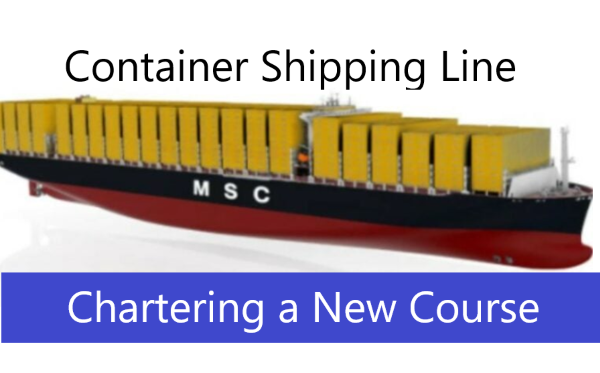Setting a new record for the global shipping industry, the world’s largest container line – Mediterranean Shipping Company (MSC) – has emerged as the first ocean carrier to surpass a whopping 5 million TEU (twenty-foot equivalent units) in fleet capacity.
MSC accomplished its remarkable growth from 4 million TEU to 5 million TEU in just 22 months. It effectively doubled the size of its fleet in eight and a half years and has purchased 306 containerships with a capacity of 1.2 million TEU since August 2020 – still having the largest orderbook by far in the industry, with around 130 containerships on order now.
The company’s relentless fleet build-up has seen the delivery of five 24,000 TEU-class vessels just since the beginning of this year and is scheduled to receive another 33 neopanamax and megamax ships by the end of 2023. The vessels are the world’s largest container ships based on their carrying capacity.
While MSC is in the process of breaking up its eight-year vessel-sharing ‘2M’ agreement with Maersk, it is going ahead with its own vision for LNG dual-fuel containerships. Details have emerged of the company’s recent order for ten of these 11,500 TEU vessels, with delivery to be spread between 2025 and 2026.
They are called ‘dual-fuel’ because they are expected to also be ‘ammonia-ready.’
Ammonia-powered Containerships
MSC has signed a Memorandum of Understanding (Mou) with Lloyd’s Register, along with ship designers and energy solution providers, in a design for the ammonia dual-fuel operation container ship. Under the MOU, a technical specification and the associated design documents will be developed for a 8,200 TEU container ship design.
Ammonia is seen as one of the most promising alternative fuels to support the maritime energy transition, emitting no CO2 when it is burned, and its stability and energy-to-volume ratio creates opportunities for long-distance transportation. Lloyd’s Register will verify that the design conforms with safety standards and rules relating to the usage of ammonia as a marine fuel.
It should be noted note that while its fleet numbers have expanded significantly, MSC’s actual transport capacity is being moderated by another dynamic, where vessels have adopted slower steaming speeds compared to two decades ago. This adjustment reflects the industry-wide commitment to reducing carbon emissions and enhancing environmental sustainability.
As licensed Customs Brokers and Freight Forwarders, Colless Young takes care of all your international shipping and transport needs, professionally and reliably. We provide a complete range of import and export logistics services, both air and sea cargo, including warehousing and trucking, at all major Australian ports and airports.

